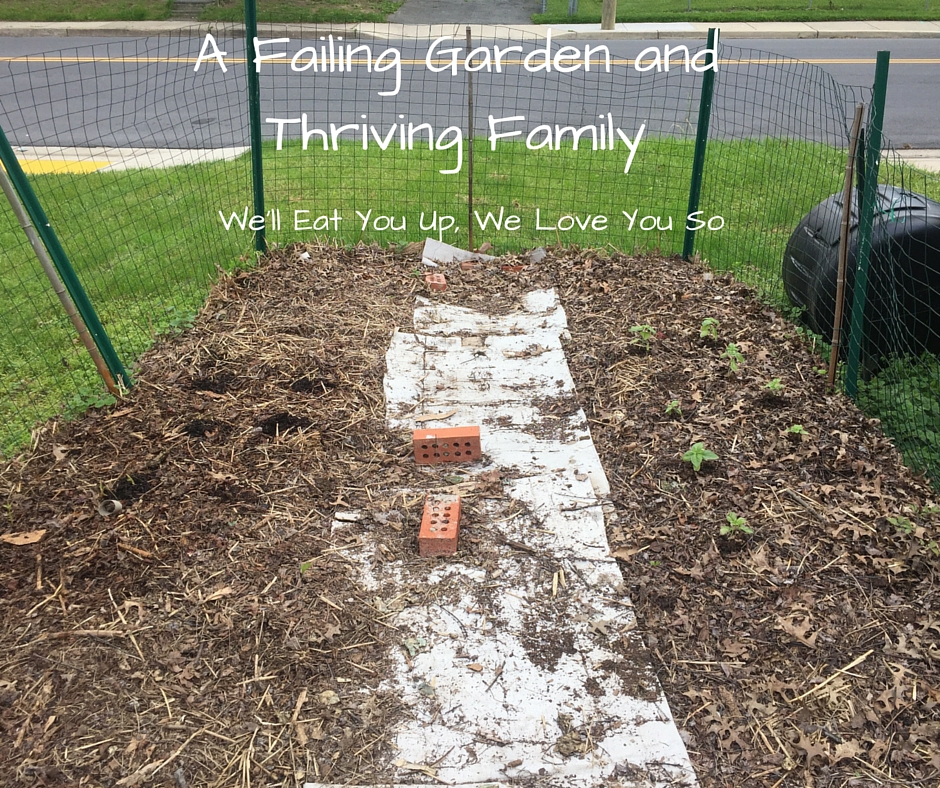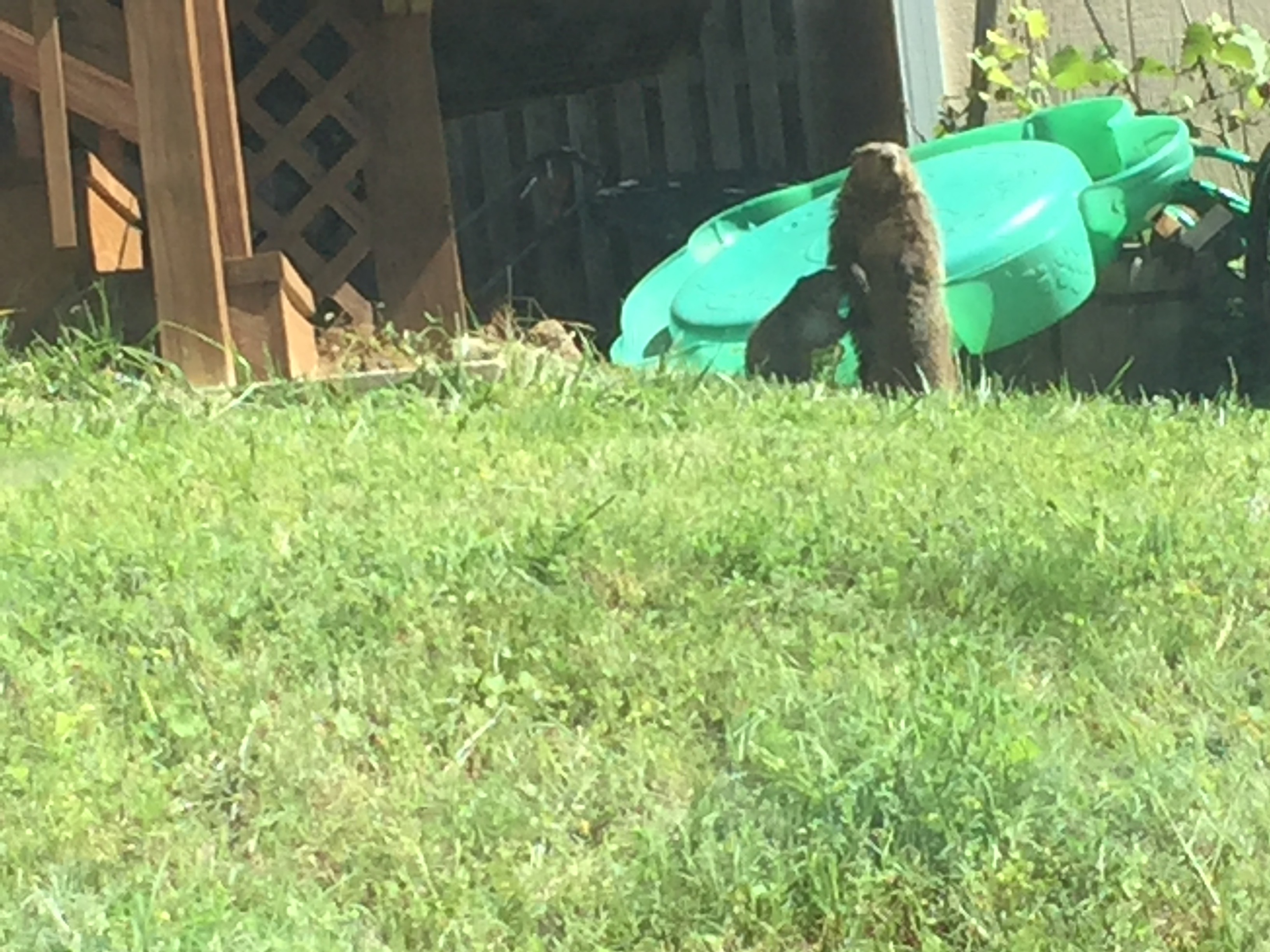
My garden is sad. Or at least I’m sad about it. But a combination of bad luck and slight neglect is reminding me where my attention needs to be right now.

My garden is feeding a fellow mommy!
I’ve planted corn, broccoli, melon, beans, peas, basil and tomatoes so far. The May rains of Biblical proportions washed away our broccoli seedlings and corn seeds. The first round of bean sprouts failed, along with the melon sprouts. A hungry animal stripped the leaves from the second round of bean sprouts, along with the vast majority of my pea sprouts. (Possibly our resident groundhog – she did that to the sweet potatoes last year.) Hungry birds looking for worms dislodged the sweet potato and few sprouts that remained.
The only things that survived were three pea plants (of the 20 or so I planted), my tomatoes and my basil. And even the basil and tomatoes have lacy holes from heavily nibbling by insects.
At this point, I’m just watering what we have and call it a day. We bought a few seedlings from the farmers’ market, but I’m not bothering to restart anything else from seed.
As frustrating as this situation is, it reinforces one of this year’s themes – the seasons of life.
In nature, there are years of abundance and years of scarcity. Weather and soil and the natural world’s variables guarantee that every year cannot be fruitful. To maintain quality soil, some of it must lay fallow every year, given time to recover from the work of growing crops.
So with life. Not every year can be easily joyful. Some years, you need to let parts of your life go untouched. With an almost preschooler and infant, I need to spend this year focusing on them. They need so much time and energy right now. It’s okay my garden isn’t producing pounds of vegetables and I haven’t gotten around to planting that fruit tree. There will be time for that in the future. This period in my children’s lives won’t come around again.
Fortunately, I think the time spent in my garden wasn’t for naught. I’m trying to learn that even if a project doesn’t turn out as planned, that it’s effort invested, not wasted. I recently finished Brene Brown’s Daring Greatly and in it, she asks, “What’s worth doing even if you fail?” Planting those seeds was being true to myself. I’d be disappointed in myself if I didn’t try to have a garden; now, I can just be disappointed in nature.
Plus, much of the time I spent was with Sprout, time I wouldn’t want to give up. Using his little blue spade, he shoveled dirt into piles to place seedlings, often flinging it on himself and me. He carries his full watering can from the hose to the garden, only occasionally watering his shoes instead. Watching his skills grow from last year to this year has been really rewarding. While it still takes longer to include him than if I did it myself, he was legitimately helpful this year. Every shovelful of dirt, every seedling planted is a little more knowledge he has, a little more I share with him.
So this is a year to build soil and relationships, to cultivate things without expecting immediate or even visible results.
I wrote this essay a month ago, but kept having other topics come up and didn’t get the chance to post it. Since then, a number of tomato and squash (or maybe melon?) plants have sprouted up from seeds in the compost. Just goes to show that growth may come from unexpected places! Read more about my adventures in gardening with kids in A Toddler’s Guide to Starting Seeds, Rooting DC: Growing Youth Agriculture, and Starting Seeds with Sprout.
Pingback: Growing Through the Seasons | We'll Eat You Up – We Love You So
Pingback: Why I Didn’t Make a Sign for My Son’s First Day of School | We'll Eat You Up – We Love You So